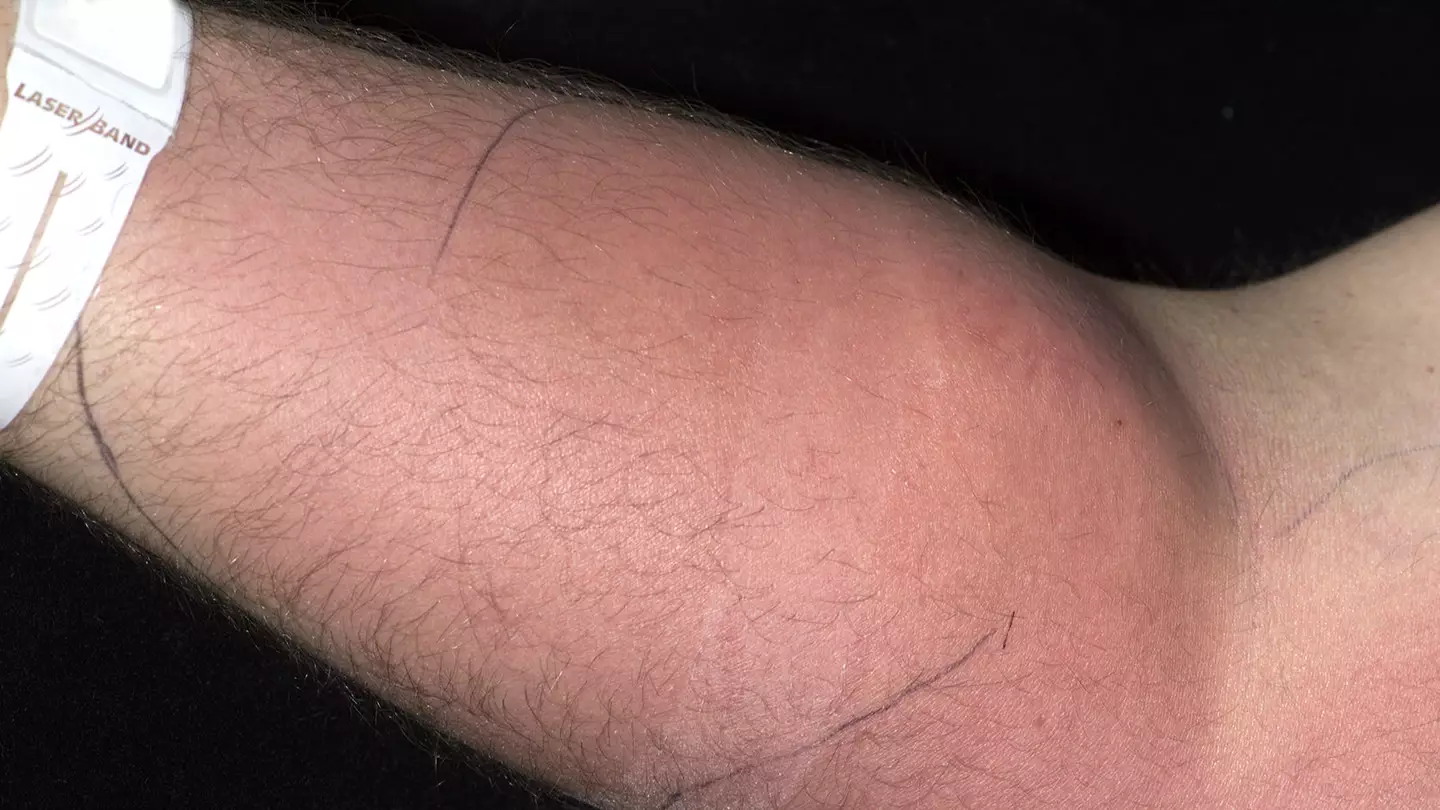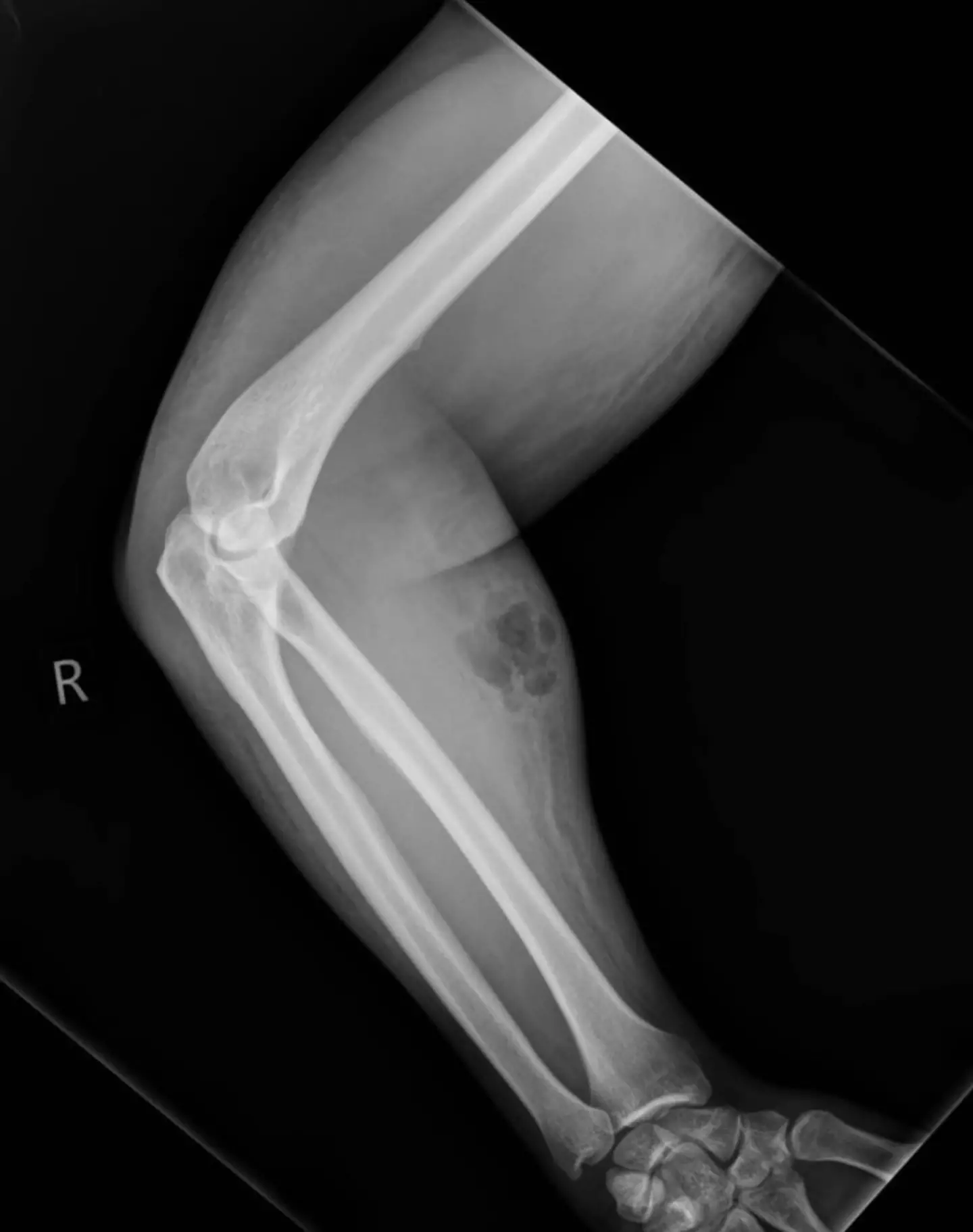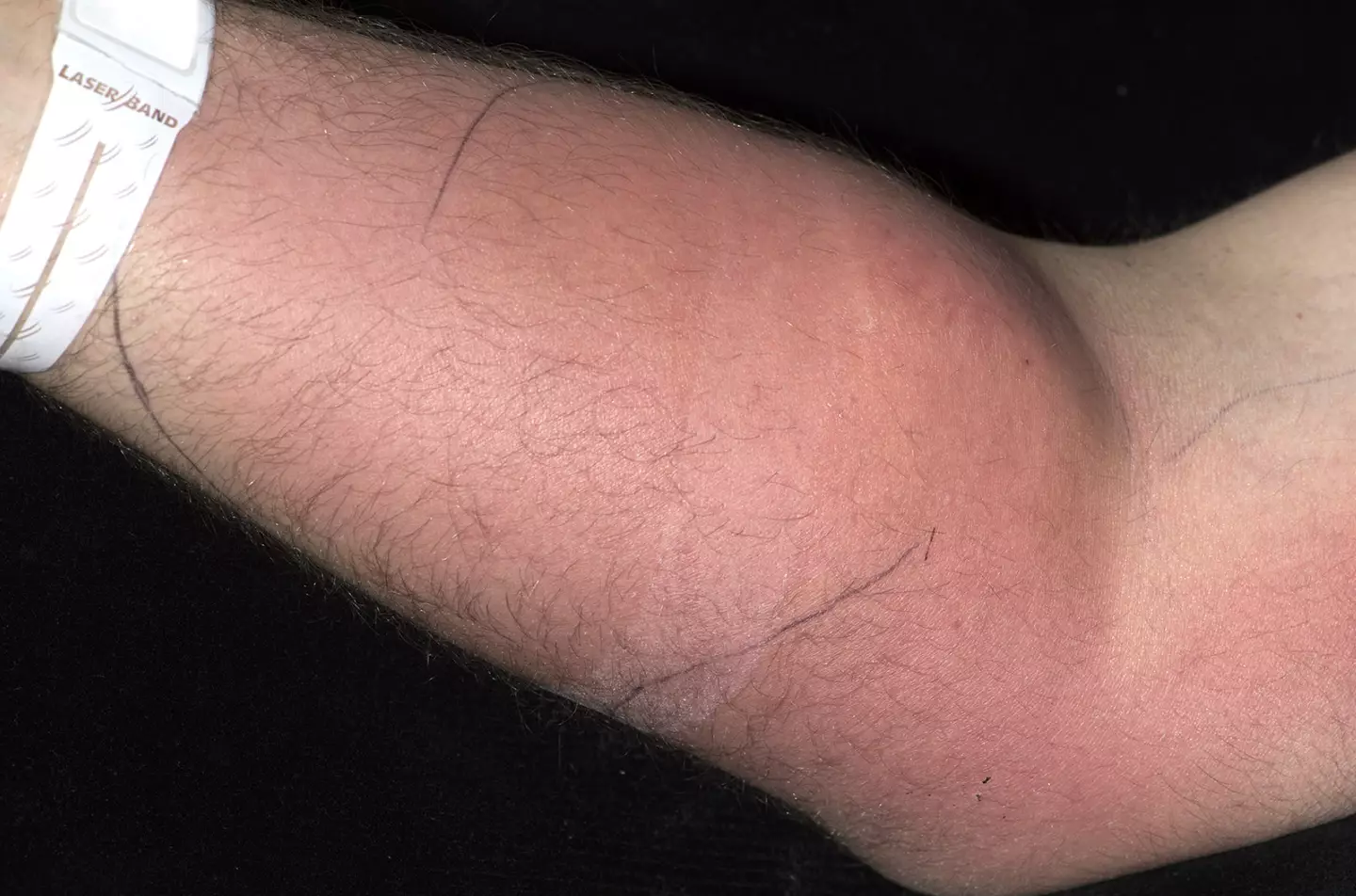
A doctor has reacted to a case about a man who injected himself with his own sperm as a 'cure' for back pain.
It's not unheard of for people to create their own home remedies for fixing ailments, particularly in the US, where healthcare can be so expensive.
Of course, you shouldn't do anything regarding your health without medical advice, but this Irishman decided to do so anyway.
In an extremely unconventional way of dealing with his back pain, the guy decided to inject himself with semen. He was doing this for 18 months until he found himself in hospital with 'severe, sudden onset lower back pain'.
Advert
But doctors went on to learn that the back pain wasn't actually new and that the guy had been self-medicating, as such, for several months.

During the examination, they also spotted that his arm was red and swollen. An X-ray went on to show that he had a build of semen in muscle where he'd injected and he was diagnosed with subcutaneous emphysema — a rare condition that happens when air gets trapped under your skin.
While he needed medical attention for both his back and his arm, once his back pain subsided, he reportedly discharged himself from hospital before having his arm properly cared for.
In light of the incident, Dr. Asim Cheema, an Internal Medicine and Cardiology Specialist at Your Doctors Online, weighed in on it all and branded the case as 'deeply concerning'.
He told UNILAD: "This is a deeply concerning example of how misinformation and desperation can drive individuals to take extreme, dangerous measures to manage chronic pain.

"Injecting non-sterile bodily fluids like semen, particularly without medical supervision, is not only ineffective but also poses serious health risks. Complications can include infection, inflammation, embolism, and subcutaneous emphysema, as seen in this case.
"This behaviour borders on self-harm and highlights a wider issue — people with chronic conditions increasingly turning to unverified, anecdotal remedies online instead of seeking evidence-based medical care."
Dr Cheema further warned: "This case serves as a cautionary tale about the dangers of self-experimentation and the critical need for public education on safe and proven treatments for common health conditions.

Medical issues should be handled under the guidance of trained professionals, not improvised with online myths or homebrew remedies."
He went on to list what people should do if they have chronic or acute back pain:
- Physical therapy — this being 'one of the most effective interventions'
- Core strengthening exercises
- Over-the-counter pain relief like non-steroidal anti-inflammatory drugs (NSAIDs) for a short-term fix
- Posture correction and ergonomic adjustments, something which those with sedentary jobs may find particularly beneficial
- Heat or ice therapy (depending on the type and cause of pain)
- Lifestyle modifications such as weight management and regular movement
- Getting yourself referred to a spinal specialist for further intervention or undergoing imaging